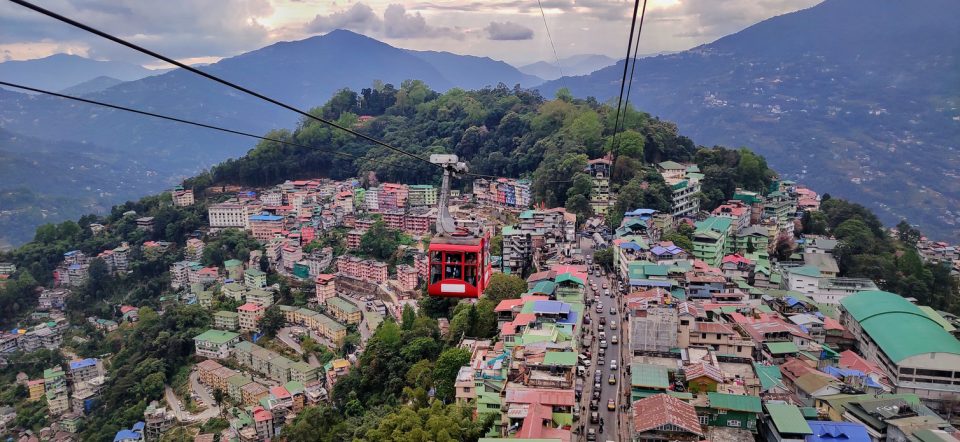
Protests in Sikkim as SC refers to Sikkimese Nepalis as people of 'foreign origin'

In Sikkim, a protest is brewing over an observation in a Supreme Court verdict on January 13. Several political parties organised rallies in the state after the Supreme Court, while deciding a petition on tax exemptions for Sikkim residents, referred to Sikkimese Nepalis as people of “foreign origin” who had “migrated to and settled in Sikkim”.
The observation has sparked off protests in the north eastern state which merged with India in 1975 and has three main groups of people — Lepchas, Bhutias and Nepalis. The court had also said that the Lepchas and Bhutias were the “original inhabitants of Sikkim”.
Protest against SC observation
The Sikkimese Nepalis, who form a majority 58 per cent of the population, have asked for these observations to be expunged from the record. Widespread protests have been held by both the ruling and opposition parties against this observation.
Also read: Sikkim to plant 100 trees for every child born in state
Sikkim’s Health Minister Mani Kumar Sharma has resigned from the cabinet charging the ruling Sikkim Krantikari Morcha (SKM) party of not taking the “sentiments of the Sikkimese people seriously”.
State’s Additional Advocate General Sudesh Joshi, who had been a lawyer for the petitioners, has also resigned.
The issue has been a sensitive one in Sikkim for some time now. Lepchas and Bhutias form 27 per cent of the population and are mainly Buddhists. Sikkimese Nepalis, who form the majority, are mainly Hindus. It has been a longstanding issue for Lepchas and Bhutias, who feel that they do not get their just due because they are in the minority in the state.
The case in SC
The Supreme Court was hearing a petition filed by the Association of Old Settlers of Sikkim and Others, comprising mainly trader communities like Marwaris, challenging income-tax exemption to those who were Sikkimese nationals before the state became a part of India in 1975.
Under the exemption, Sikkimese residents were exempted from paying income-tax on any income arising from Sikkim and on dividends or interest from securities. But it excluded Indian nationals residing in Sikkim before 1975 and Sikkimese women who marry a non-Sikkimese man.
The court in its judgement held that the benefit of the tax exemption should be extended to all Indian citizens domiciled in Sikkim. It also struck down the exclusion of Sikkimese women.
The contentious part
While the judgement has been welcomed by all, an observation by Justice BV Nagarathna is what triggered the protests. Justice Nagarathna, while talking about the history of Sikkim, referred to the Sikkim Income Tax Manual of 1948 and said that there was “no difference” between “original inhabitants of Sikkim, namely, the Bhutia-Lepchas and the persons of foreign origin settled in Sikkim like the Nepalis or persons of Indian origin who had settled down in Sikkim generations back”.
On Monday, the ruling SKM called for a protest and the next day a state-wide protest was held by opposition parties.
Chief Minister Prem Singh Tamang welcomed the judgement, but expressed “deep concern on the mention of Sikkimese Nepali community as foreigners”.
The prevailing sentiment is that the observation has created insecurity for those living in the state for a long period of time.
Meanwhile, the government has decided to file a review petition to get this reference expunged.


